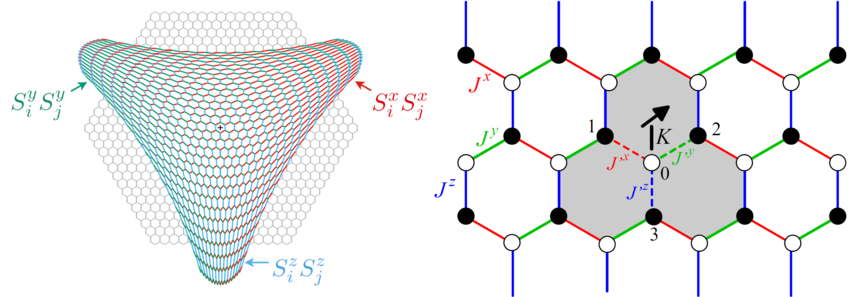Theory of spin liquids: Instabilities and defects
Quantum magnets play a key role in the search for novel states of matter: They can display both conventional (i.e. symmetry-breaking) and topological forms of order, together with novel types of elementary excitations. This project deals with a particularly fascinating class of frustrated magnets, so-called quantum spin liquids, in which large classical degeneracies and quantum effects conspire to produce non-trivial ground states which do not break any symmetries but are characterized by topological order and emergent fractionalized excitations.
This projects targets at two experimentally highly relevant aspects of spin liquids, namely (i) instabilities towards conventional long-range order and (ii) the physics of defects. The goal is to understand basic properties and experimental signatures of spin-liquid physics in real-world materials, such as alpha-RuCl3, where highly unconventional behavior has been found despite the presence of long-range order. The project will involve microscopic calculations, both analytical and numerical, using simple microscopic models (such as variants of the Kitaev model) as well as field-theoretic considerations.
The theory work will be performed in close contact with experimental activities in Dresden and elsewhere.













